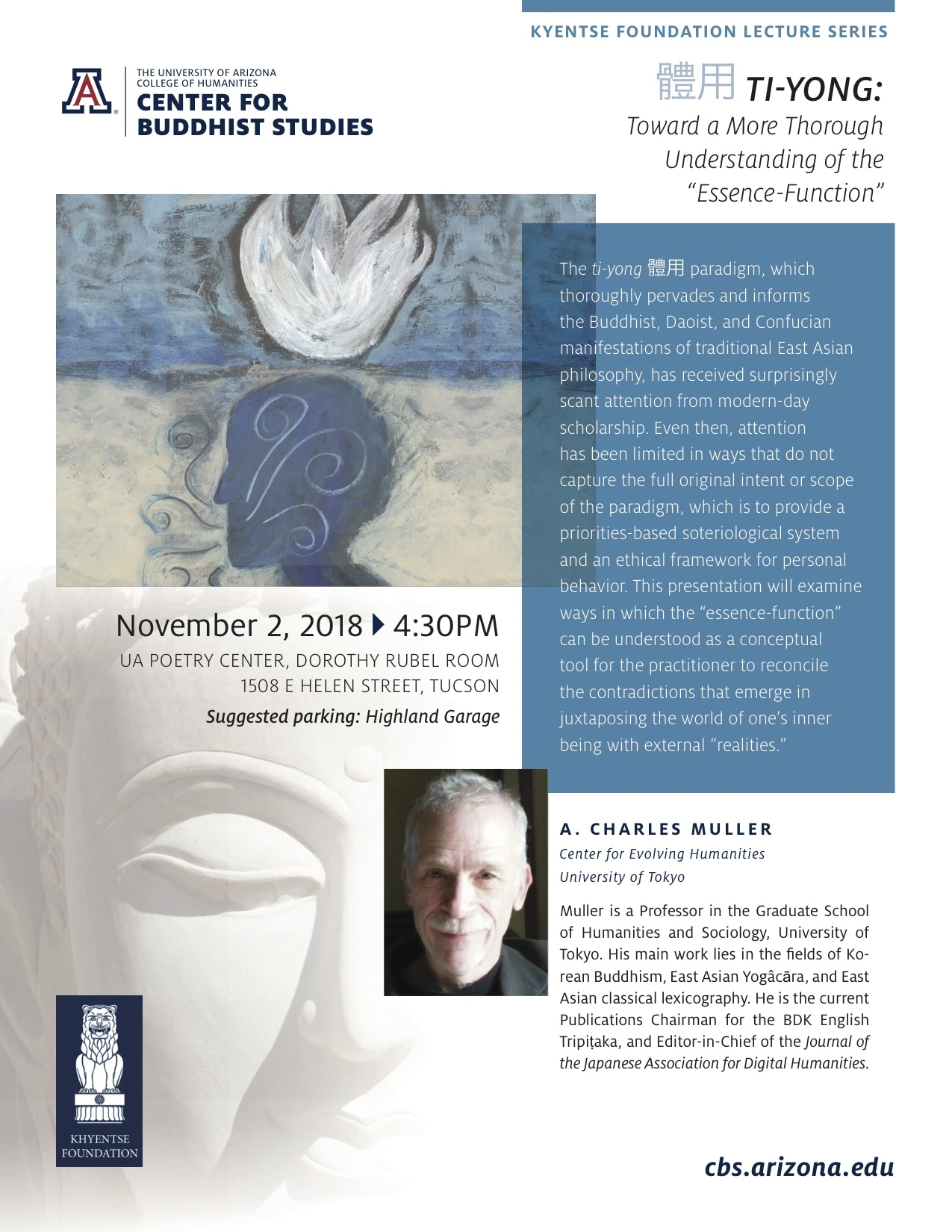
The Center for Buddhist studies is glad to present Khyentse Foundation Lecture Series in the forthcoming November. The event is free and open to public.
Title: Ti-Yong (“Essence-Function”): Toward a More Thorough Understanding of the Ethico-Soteriological Prioritizing Principle for East Asian Buddhism, Confucianism, and Daoism.
Time: NOVEMBER 2, 2018, 4:30PM
Location: POETRY CENTER, UA campus, Tucson, AZ
Presenter: Prof. A. CHARLES MULLER, Center for Evolving Humanities, University of Tokyo
Abstract: The ti-yong 體用 paradigm, which thoroughly pervades and informs the Buddhist, Daoist, and Confucian manifestations of traditional East Asian philosophy, has received surprisingly scant attention from modern-day scholarship. When it has been treated, it has been mainly: (1) the subject of mere philological/historical inquiry (in Japan); (2) treated as a strictly metaphysical paradigm (in Western studies of Neo-Confucianism), or (3) taken solely as a kind of onto-cosmology (by such scholars as Xiong Shili and Whalen Lai). While all of these are perfectly valid approaches to ti-yong, they do not capture the full original intent or scope of the paradigm, which is to provide a priorities-based soteriological system and an ethical framework for personal behavior. Such an application is readily visible in the Confucian and Daoist classics as well as East Asian Buddhist commentaries. This presentation will examine some of the major ways in which each of these three traditions applied this hermeneutic structure to resolve various conceptual problems, and also go a step further by suggesting that essence-function can be understood not only as a hermeneutical device or an onto-cosmological map, but as a conceptual tool for the practitioner to reconcile the contradictions that emerge in juxtaposing the world of one’s inner being with external “realities.”

